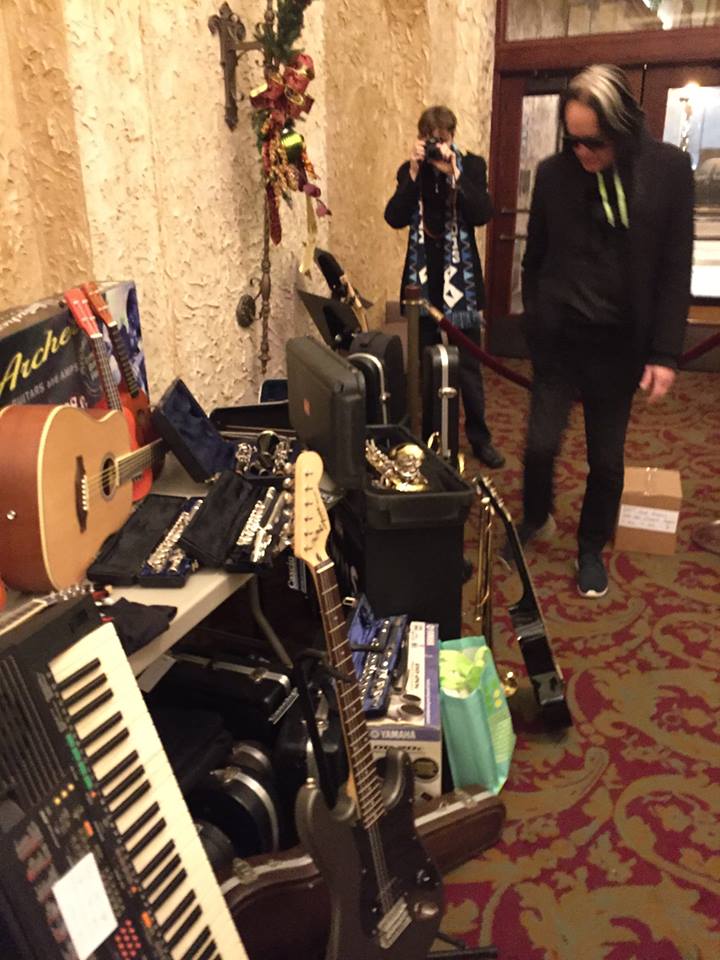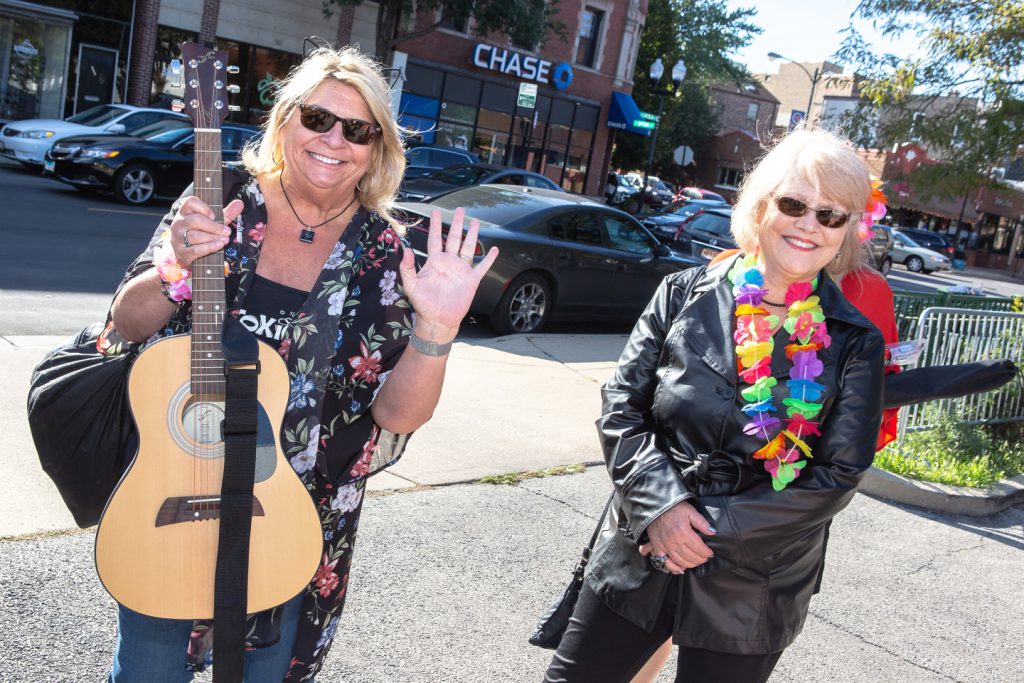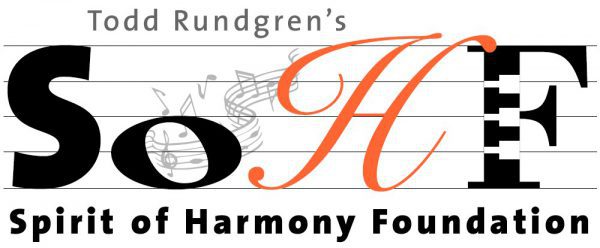The Spirit of Harmony is happy to help you find a new home for any instruments you wish to donate to a local youth program. Please click here to begin.
Community instrument drives are a great way to motivate people to go to donate their unused musical instruments to children who need them!
3D Printing of Musical Instruments
The Spirit of Harmony is exploring this ever-expanding field to help put instruments into the hands of more children! Learn more.
Health and Instrument Cleaning: The NFHS, NAfME and the NAMM Foundation recommend the following guidelines for handling musical instruments for the health and well-being of student musicians. These guidelines are designed for use by anyone collecting or handling instruments that have been donated. Music educators and educators may use these guidelines when teaching students and parents how to clean instruments. Please click here.
Help us put musical instruments into the hands of children who need them!
The Spirit of Harmony assists local groups and/or individuals in organizing Community Instrument Drives to collect instruments that can be redistributed to music students. As Todd Rundgren says, “The Spirit of Harmony Foundation exists to make sure new hands are learning to play music, new ears are learning to appreciate it, and new hearts are learning to love it.”
Todd, the board of directors, and staff of the SOHF thank you for your interest and effort to launch a Community Instrument Drive.
A Community Instrument Drive is a fun and very effective way to support Music Education Advocacy!
Here is a handy template for a flyer/poster that you can customize with information about a collection in your city (and some fun artwork you might want to use). Always be sure to make it clear who your partners are, who will get the instruments, and all pertinent information.
Instrument Drive Flyer Template
Here is a recent example of a Flyer
Example of Artwork you might want to add
For a Facebook photo album of a previous Instrument Collection, please click here.
Instruments are the most common need expressed by music programs. Also, the Foundation gets frequent calls from people who want to donate instruments, so we know that attics and basements and closets are filled with musical treasures. In the spirit of our Foundation’s objective of matching needs with resources, an active instrument collection program directly supports our Mission.
Grassroots Community Instrument Drive:
The Foundation encourages supporters to initiate their own collection drives within their communities, to benefit local music programs. This is essential to our grassroots efforts. There are several aspects to consider ensuring a successful drive and SOHF staff are available to aid and guide your efforts.

Steps and considerations for a successful Community Instrument Drive:
- Mobilize a team of friends, family, coworkers, or others together to take on this effort to plan the who, what, where, and when!
- Most high school and college students are encouraged and/or required to engage in community service projects. Students make outstanding partners for a Community Instrument Drive.
- How long will your instrument drive last?
Joint Efforts/One-Day Collection: A successful Community Instrument Drive can be held in conjunction with other events, such as festivals or concerts. Pre-existing charitable collections are also great collaborations, for example, communities that collect back-to-school supplies, winter clothing, toys, or holiday foods can be asked to add a musical instrument drive component to their campaign.
Multi-Day/Week Collection: If planning a drive over a longer period of time, it is critical to establish drop-off locations, perhaps a school, church, community center/group, or retailer. A retailer (particularly a music-related retailer) may offer a small discount toward a purchase for someone who donates. Your drop-off locations should be willing to secure the donations until you are able to arrange a pick up.
Other potential drop-off locations: Think about places that have safe storage space, convenient hours of operation, and enough staffing so the collection process is not a burden. Some examples of drop off locations are service clubs (like Kiwanis) and community centers, banks, retail stores, schools, etc.
Longer-term storage: Locations will be required for perhaps several months for a number of reasons. Even after the period of time of your drive is over, often people will come forward with additional donations. Once the instruments are collected, a storage space is needed until arrangements can be made for the repair/refurbish/distribution phase of the Drive.
Promoting a drive:
It is important to develop ways to inform the community of your efforts, repeatedly. Often a person will hear of a drive, have an instrument to donate, but does not make the donation because “life” gets in the way. We’ve learned from experience that repeated messaging is crucial. Make a plan for local public relations and outreach. Spread the word about the instrument collection for several weeks ahead of your drive.
Social Media: Facebook groups that are involved in any kind of music are a great tool for outreach as well. Check on CraigsList periodically for instruments that are free. Another idea is to create a post in a local site such as TrashNothing. The way these work is people will leave the item out on their front porch (or equivalent) so you arrange a pick-up time and there’s basically no personal contact. We strongly advise you specify that you are unable to pick up a piano or full-sized keyboard unless you happen to have a truck, storage space, and some very brawny helpers. Here is a sample of what can be posted, and the response might amaze you: Do you have any musical instruments gathering dust in your closet? My organization collects musical instruments (in working condition or repairable) and redistributes them to children’s music programs. NO pianos or full-sized keyboards.
Always put SAFETY FIRST when going to someone’s home or business to pick up instrument donations. Advertisements and freebie sites are very public, and realistically, not everyone who participates has the best intentions in mind. Please don’t enter anyone’s house if you are alone or feel unsafe in any way. It is always best when the instruments can be left on a porch, in a hallway, garage, or other neutral area. (No, you definitely do not want to go into someone’s bedroom closet to dig out a trumpet that is buried in piles of old newspaper and shoe boxes. Just trust us on that one!)
Instrument repair:
- Most donated instruments have been stored for significant periods of time and must be reconditioned in some way before they are suitable to give to a music student. At the very least, they need to be restrung, cleaned, or calibrated. Therefore, it is not just a simple matter of accepting them and giving them away immediately. Presenting a music program with an instrument that cannot be used is helpful to neither the program nor to the children learning music.
- Once instruments are collected, trained professionals will be needed to evaluate and ready them to be donated back into your community. One way to have this done is to enlist the help of repair professionals as a part of your planning. Another is to work with other SOHF partners, who will take the instruments.
- Financial resources will be required to help pay for repairs, labor and parts. Accepting donations during your drive is another consideration. The staff of the SOHF can guide you to work with our partners and/or how to raise and process cash donations.
- With the exception of pianos and/or large organs, all instruments, no matter the condition, can be accepted. Instruments that are determined to be beyond repair are often harvested for parts that can be used on other instruments.
- In order to get an official tax deduction, donors MUST affix their name and contact information to the instrument. The tax deduction letter comes from the final destination of the instruments (school, organization, etc.).

Ideas for Collecting Instruments:
- Contact a local concert venue or music club and ask whether they will give patrons a ticket discount or free drink coupon if they bring in a used instrument.
- Request local bands playing at music clubs assist at their shows soliciting instrument donations.
- Schools and churches often have instruments that are broken and need to be fixed, just taking up space in a storage room. They might be happy to give them a new home.
- Local music stores have instruments that have lived a full life in their rental programs. They may no longer be in condition to be rented, however with some refurbishing they would be more than acceptable to a music program.
- Set up a large collection bin or container at a summer “concert in the park” series.
- Do you have a civic orchestra or symphony? Would they be willing to be a collection/drop off site? Do they have used instruments they no longer use?
- Public transit agencies and train stations, shopping malls, public buildings, taxi companies, and airports have lost-and-found rooms filled with everything from mittens to bicycles, and a truly astonishing number of musical instruments. They are often more than happy to give away items that have exceeded their “claim period” (contact the administration office and ask about their policy).
- Ask if you can post your flyer about the instrument drive in your local stores/outlets. Music stores are usually happy to allow a flyer/information sheet at their checkout counter for their customers to see.
Partnerships
The Spirit of Harmony has partnerships with schools and organizations across the country to assist with placement of instruments. We work with national, regional, state-wide, and city-wide organizations that collect, refurbish, and redistribute musical instruments to local children in need. For assistance in finding a local program, please feel free to contact the Spirit of Harmony.
SOHF has a long-standing partnership with Hungry For Music for large-scale instrument donations.
